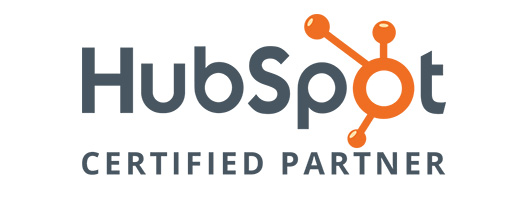Many business owners rely on content management systems (CMS) for their website build. In fact, more than 64.9 million live websites use a CMS.
That’s because CMS platforms bring multiple advantages to business owners. First, these tools allow businesses to make it possible to create websites without having to build the entire thing from scratch, which is a huge help for small business owners. They also make upgrades, customisation, content building and security easier.
Ultimately, CMS platforms make website and content management easier for businesses, especially those with a limited budget.
CMS platforms, however, aren’t created equal. They have different functions, features and add-on perks that suit different kinds of businesses. This means you have to choose the best CMS for your needs and goals to maximize its use and benefits.
If you’re unsure of which platform to invest in, ZipZipe shares this comparison of the best CMS platforms for website building in 2022.
- WordPress
WordPress is the favourite CMS worldwide, powering 39.5 per cent of all websites. Its popularity stems mostly from its ease of use, especially when it comes to blogging. WordPress makes it easy for users to publish long-form content at specific dates and times, add images and other rich media to the page, and even optimise for search.
This CMS platform is also known for its flexibility and scalability. It has thousands of themes available, so you’ll find one that matches your brand image and messaging. And with the right hosting plan, you can make your WordPress website scalable. It can accommodate tens of thousands of logged-in users at the same time without compromising loading times.
Pros:
- WordPress has many SEO plugins that make optimisation easier
- The cost is flexible to your budget
Cons
- You need to pay for some of the themes and plugins
- It lacks customer support; you have to rely on forums and tutorials
- Shopify
Shopify is a CMS dedicated to e-commerce businesses. It’s an e-commerce platform designed to help you set up your online store, from listing your products to accepting different payment methods.
One of the strengths of Shopify is its intuitive use. It offers ready-made templates that you can simply fill in with the necessary text, images, and other content, so it’s great for people with zero to little knowledge of coding.
Shopify offers a 14-day free trial, during which you can build and launch your site. After the trial, you’ll have to choose one of the paid plans. The prices range from $29 to $299 per month.
Pros
- Shopify includes hosting, so you don’t need to worry about site speed
- It provides customer support through chat, email and forums
Cons
- The customisation options are limited
- Its features are reliant on add-on applications, which you need to pay for
- Magento
Magento combines the best features of Shopify and WordPress: e-commerce functionality, customisation and SEO. It’s designed primarily to serve e-commerce needs, with the ability to execute several front-end tasks from the same back end. This means you can process orders, manage customer information and publish product catalogues using the same platform.
This platform uses a drag-and-drop builder that makes it easier to layout and adds content to each page. It also comes with SEO features that make on-page optimisation easier, such as meta tags for all pages and SEO-friendly URLs for products.
Pros
- The dashboard and page builder are accessible through mobile
- It lets you manage multiple stores in various locations, with capabilities for various languages and currencies
Cons
- The initial setup can be complicated
- The process for listing products and customizing the design is time-consuming
- Joomla
Joomla is an open-source CMS that offers multiple functionalities right away, meaning you don’t need to install other plugins or applications to use them. This ready-to-use multifunctionality is what makes Joomla popular, being the second largest CMS with a 3.5 per cent market share.
One of its key features is its multilingual setting. Joomla supports more than 70 languages through the platform’s core software, unlike other CMS platforms that need plugins to offer the same feature. It also has a built-in smart search feature, which makes it easier for site visitors to find the information they need.
Pros
- Joomla comes with security features that protect your website from hackers, such as 2-factor authentication
- It has SEO capabilities that many expert webmasters argue are better than that of WordPress
Cons
- The web development terms featured in the control panel aren’t beginner-friendly
- Joomla offers a limited number of free extensions, fewer than WordPress
- HubSpot
Being the pioneer of inbound marketing, HubSpot launched a CMS platform early in 2020 with the goal to make website management as painless as possible. Most of its key features are geared towards content creation, publishing and optimisation. HubSpot CMS also comes with lead generation tools and multi-language support.
This platform is perfect for beginners because its user-friendly tools enable people to launch a website without technical knowledge.
Pros
- HubSpot provides you a dedicated team who’ll monitor your website 24/7 and check for bugs, viruses and cyber attacks
- It come with social media and email tools that make it easier to share your on-page content and drive engagements
Cons
- It doesn’t offer e-commerce capabilities
- It has a limited gallery for themes and plugins
Choosing the Right CMS for Your Business
All these CMS platforms are great options – it all comes down to what kind of functionalities your business needs in a site builder. Research more about each platform and its features, pricing and third-party app integration to figure out which one best suits your business best.
If you need assistance in building your website, look no further than ZipZipe. We’re a full-service digital marketing agency in Sydney offering web development services to businesses of all sizes. We’ll help you build a website that attracts traffic, generates leads and converts customers, boosting your bottom line. Fill out our online form to schedule a free strategy talk.





